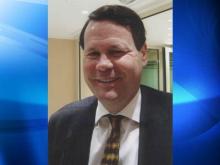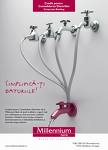May 10, 2010 – Victims of the Millennium Bank Ponzi scheme have survived a motion to dismiss filed by Defendant JPMorgan Chase Bank in their class action lawsuit. The complaint alleges that the bank aided and abetted the perpetrators of a $200 million Ponzi scheme which operated out of offices located in Napa, California. U.S. Magistrate Judge Edward Chen refused to dismiss four out of five of the counts, which will now proceed into a discovery phase requiring JPMorgan to produce documents and answer questions about its banking activities.
the perpetrators of a $200 million Ponzi scheme which operated out of offices located in Napa, California. U.S. Magistrate Judge Edward Chen refused to dismiss four out of five of the counts, which will now proceed into a discovery phase requiring JPMorgan to produce documents and answer questions about its banking activities.
JPMorgan is the successor of failed Washington Mutual Bank (“WAMU”), which had branches in Napa, where Millennium’s mastermind, William Wise and his associates, carried out their banking activities. Wise lured over 250 investors by offering certificates ![]() of deposit (CDs) with unrealistically high interest rates. Millennium Investors were instructed to mail checks to Napa, which were presented for deposit at the WAMU branches. Millions were commingled and then either transferred offshore or used by Wise and his cohorts for personal expenses, including payments for a private jet, an extensive wine collection, and to support Wise and his family’s extravagant lifestyle.
of deposit (CDs) with unrealistically high interest rates. Millennium Investors were instructed to mail checks to Napa, which were presented for deposit at the WAMU branches. Millions were commingled and then either transferred offshore or used by Wise and his cohorts for personal expenses, including payments for a private jet, an extensive wine collection, and to support Wise and his family’s extravagant lifestyle.
The complaint alleges that WAMU continued to conduct business with Millennium even though it knew that investor monies were being siphoned away. Judge Chen determined that the allegations in the Complaint, if proved, would state a cause of action. Specifically, he permitted the claims of aiding and abetting fraud, aiding and abetting conversion, breach of fiduciary duty, and violation of California Business Code to proceed. However, he found no evidence to support the claim that there was a conspiracy to commit fraud.
The judge’s decision appears below:
 Boston Accident and Injury Lawyer
Boston Accident and Injury Lawyer



 According to the complaint, Wise and Millennium Bank raised over $150 million from over 250 investors by promising returns as high as 9% on premium certificates of deposit, when the market was offering much lower rates. Millennium Bank was primarily operated out of Napa, California and claimed to be a subsidiary of United Trust of Switzerland, another Wise entity. Millennium Bank’s sophisticated internet marketing allowed them to dupe hundreds of investors worldwide.
According to the complaint, Wise and Millennium Bank raised over $150 million from over 250 investors by promising returns as high as 9% on premium certificates of deposit, when the market was offering much lower rates. Millennium Bank was primarily operated out of Napa, California and claimed to be a subsidiary of United Trust of Switzerland, another Wise entity. Millennium Bank’s sophisticated internet marketing allowed them to dupe hundreds of investors worldwide.



 In essence, the suits allege that these hedge funds failed to perform any meaningful investigation, due diligence or oversight of the Madoff fund, which reported consistent double digit gains year after year, notwithstanding questions about the trading strategies allegedly employed or the fact that Madoff enforced a veil of secrecy over his actual trading activity. In fact, it appears that there was no such strategy whatsoever.
In essence, the suits allege that these hedge funds failed to perform any meaningful investigation, due diligence or oversight of the Madoff fund, which reported consistent double digit gains year after year, notwithstanding questions about the trading strategies allegedly employed or the fact that Madoff enforced a veil of secrecy over his actual trading activity. In fact, it appears that there was no such strategy whatsoever. 

